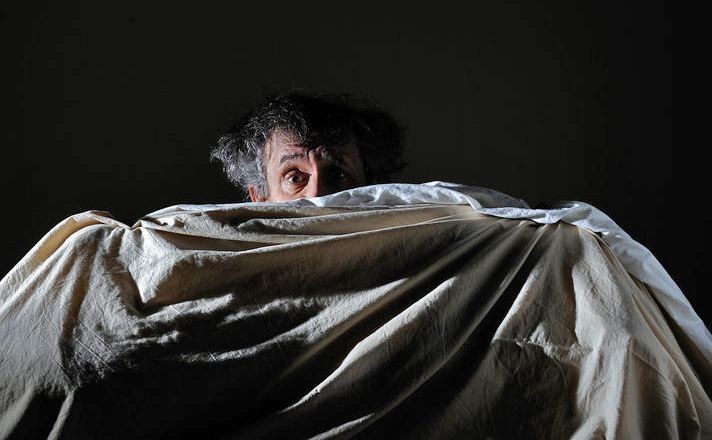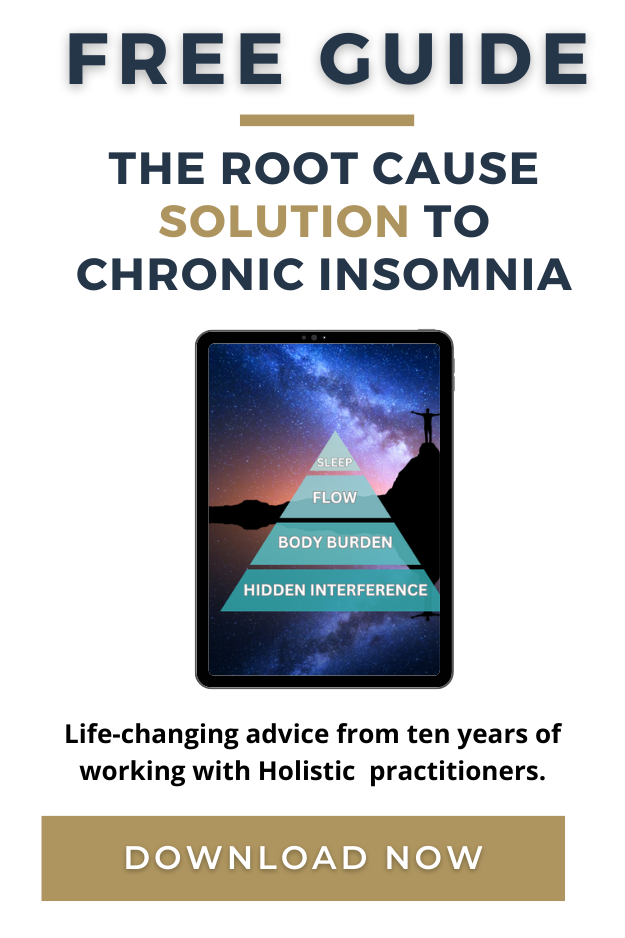Five years on melatonin is not a joke. I tried quitting it before and noticed that after a few nights of initial sleeplessness my body caught up with its natural rhythm and I was able to fall asleep without it. Not this time. I’ll share what happened and my speculations for the reasons that I failed so miserably.
My insomnia recovery is progressing steadily but slowly. I finally hit a point where I feel that most nights I get enough rest and my sleep pattern was “normalizing.” There was only one thing that was bothering me: I still wake up briefly around 2 or 3am and I wake up too early before that sense of refreshing sleep takes place.
I know for a fact that melatonin not only forces on the body a circadian rhythm (often lauded as a benefit) but also messes with it. Think about it, our body has a circadian rhythm of its own but by taking melatonin we tweak that clock and tell it to go in the direction it is not naturally set to go.
Additionally, I read that melatonin disrupts our cortisol rhythms. While we fall asleep easier we can wake up too early because we supply our body with an unnaturally high amount of the hormone and the body needs to compensate for it somehow. Since cortisol is very related to blood melatonin levels (cortisol levels fall in the evening and rise in the morning, while melatonin does the opposite) it is quite possible that a drop in high melatonin levels can give rise to high cortisol in the AM.
I figured it was enough messing with this melatonin/cortisol rhythm so I decided to turn things loose and see where the cards fall. It was time to allow the ‘natural’ circadian rhythm to take over and re-calibrate itself. I was hoping that this would take care of those wakings and balance out the night time and early morning cortisol spikes.
How the Quitting of Melatonin Experiment Unfolded
The first night I skipped melatonin was the night after a Christmas party when I went to bed at 3am. I figured, “heck, who takes melatonin at 3am anyways, let’s power through this!” So, couldn’t fall asleep for an hour but I blamed it on the disco music still playing in my head. Slept three hours and woke up early. Apparently the circadian rhythm doesn’t give a damn when we go to bed – it’s time to wake up according to schedule!
Next night I went to bed at 10pm, as usual. No melatonin. Big difference. I’m not getting sleepy. At all! All alert and energetic. One hour passes. Not sleepy. Two hours pass. Only a bit sleepy but still awake. Damn. Crashed a round 1am and slept very lightly. But I expected this and was ready for it. Remember? Re-calibration. I needed to suffer through it. The only question that was bogging my mind – how long?
A week passed with similar results where I just couldn’t fall asleep till midnight and experienced a lot of wakefulness at night. Meanwhile, I was also taking L-Tryptophan which is a precursor to serotonin and a precursor to melatonin down the line. As a general rule – we always want to supplement with precursors and not the hormone itself because this way our bodies can produce what they need and metabolize it naturally.
While Tryptophan was helpful and I started falling asleep sooner it became a problem in itself where I would wake up around midnight with these strange sensations in my stomach. So while it was helping to fall asleep it also woke me up. Tryptophan had to go. As soon as I dropped the amino acid I was right back to where I started – not able to fall asleep and being very wakeful throughout the night. I waited for two weeks for things to re-calibrate and finally gave up.
Now the question: WHY? How come my melatonin levels did not come back? Am I in trouble? What if I am addicted? What if I created a life long dependency?
My Educated Speculations
It is quite possible that taking melatonin long term has various repercussions. I am guessing there a few things that could have happened in my case:
1. I took it so long that my pineal gland got lazy and stopped pumping it out. After all, why work when there’s a fresh supply of the stuff, right? This happens all the time and various supplements can reduce the symptoms but create more imbalances. I suspect this to be the chief cause.
2. Melatonin is said to be a very potent antioxidant. Because I am also chelating mercury, my brain could be more sensitive to all the oxidative stress that I have to endure while moving mercury out. Stopping melatonin could have reversed me to a state where my brain felt on fire from all that mercury toxicity.
3. I’ve been prompting my natural circadian rhythm with synthetic melatonin for so long that it may need much more time to re-calibrate itself, perhaps a month or longer. At this point, I’m just not willing to do it yet and will put it off till I completely detox from mercury as the stress from the latter is quite enough right now.
4. It’s winter time here and I’ve been prone to SAD (Seasonal Effective Disorder) ever since we moved back from California. I honestly hate winters. Had I tried to quit melatonin in summer I could have had different results.
Why I Will Continue Taking Melatonin in Spite of Inability to Quit
There are several purported benefits from melatonin supplementation that sound too attractive right now:
1. First the obvious: an ability to fall asleep faster and at the time that I choose.
2. I will take an even lower dose. Research suggests we may only need as much as 0.3-0.7 mg to feel the benefits. I was taking 2mg before. You can find some supplements with 10 mg which sounds totally insane. This would give you 60 times times higher blood concentrations than what naturally occurs! Some experts warn that when melatonin receptors in the brain are exposed to too much of the hormone, the receptors may become unresponsive and it stops working. Nice, eh?
3. Melatonin is said to strengthen the blood-brain barrier. Last thing I need right now is unnecessary toxins or metabolites from congested liver crossing into my brain.
Conclusion
When insomniacs share their experiences with melatonin they report different results: some are able to quit without any serious consequences while some report developing a dependency. Is it a full blown addiction? Probably not because one does not crave it but it can certainly be a dependency as it seems to be for me at this stage. You, on the other hand, might have a totally different experience as every individual experiences different results based on their biochemistry, body type and environmental factors. Let me know.





I have always been fearful of using melatonin. I used about 1 mg sublingual at 3 Pm one time to see if it would help me fall back asleep. It worked great and I had a energetic day afterwards. However, that night I could not fall asleep which is not normally a problem. It took 3-4 hrs to fall asleep. Yikes.
I’m on 20 mg of melatonin…sigh. I’m not ready to quit either but I will definitely start SLOWLY cutting back
Sounds like you already feel that this is way too high. Do you know the root cause of your insomnia?
I have been on 1mg and it makes me fall asleep in minutes versus 2-3 hours without it. I am really scared of getting addicted so I shift nights with or without it, sometimes take 0.5mg, which does not help. As the dark times approaching now, cannot imagine how to survive winter without it.
Labas Indre! Lithuanian? 🙂 I wouldn’t worry so much if you are staying with low doses. If you benefit then you need it. I would look for the mechanism though as to what is interfering with natural melatonin production. Are you experiencing any other health symptoms?
I believe it’s seasonal affective disorder because I have no problems sleeping in summer days when there is a lot of sun. No other health symptoms, just insomnia, sleep sensitivity and carbs craving. All starts in September. Of course, I am not a good sleeper throughout the whole year but it’s just so much worse in winter and lately 1mg of melatonin right before bed was so helpful but the anxiety that “I will get addicted” does not leave me alone 😀 Yes, I am from Lithuania, unfortunately.
BTW, at what time do you suggest taking melatonin? I read different sources and some of them say to take it 1-2 hours before bed and others as early as 6-7 hours before bed? I tried both ways and it seems that sometimes 1 hours before bed works just fine but sometimes I wake up drowsy and with a headache. However, if I take 6 hours before required falling asleep time, it has no effect. Maybe the answer is somewhere in between.
Wow, in all these years I’ve never seen anyone suggest to take Melatonin 6-7 hours before sleep other than in cases of international travel. Being a “sleep hormone” I would think this is quite crazy 🙂 I take about an hour before I want to fall asleep. How much do you take? The effects are very dose dependent.
I read in this article that it should be taken 6-7 hours before desired sleep time:
https://www.lesswrong.com/posts/E4cKD9iTWHaE7f3AJ/melatonin-much-more-than-you-wanted-to-know
I take no more than 1mg. Sometimes even half of 1mg.
Not sure if my comment saved, but the link is below and I usually use 1mg, sometimes half of it.
https://www.lesswrong.com/posts/E4cKD9iTWHaE7f3AJ/melatonin-much-more-than-you-wanted-to-know
Oh I see, this sounds like a good article. He’s talking about “delayed phase sleep disorder” so perhaps this could work if you are trying to go to bed much earlier than you normally do. Perhaps this is a technique to entrain the circadian rhythm but sounds a bit too counter-intuitive for me. I take 2,5 mg before bed and good to go. Some take less and it is perfect if it works.
I understood that this method is suggested for those who cannot fall asleep at desired time and the method to take melatonin right after you wake up for those who wake up too early, so I got confused what should I do if I want to fall asleep at midnight and I it does not happen very often. That’s why I tried both taking melatonin right before and 6-7 hours before. From my experience right before always helps to fall asleep but 1 in let’s say 3 nights I wake up with that hangover feeling and headache. Don’t you ever feel that?